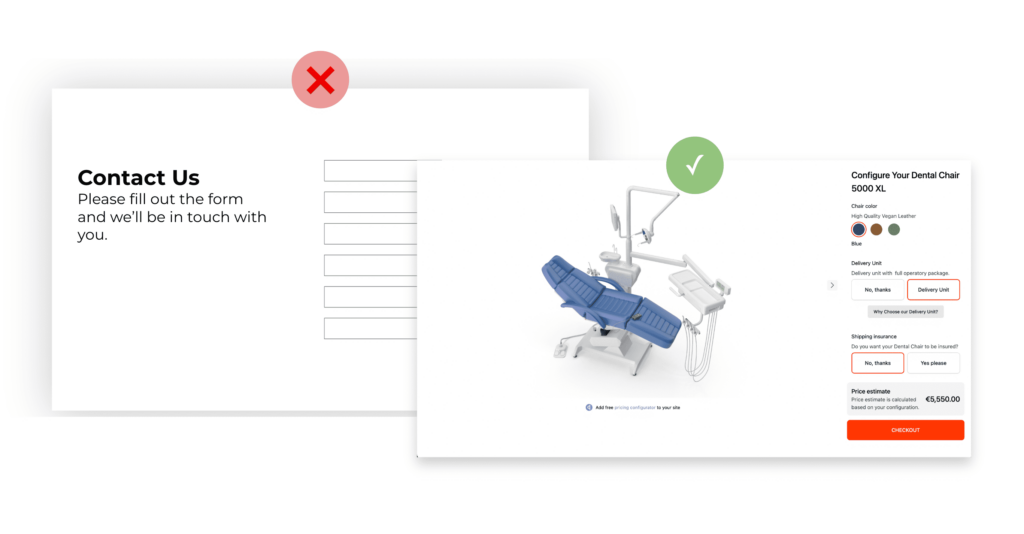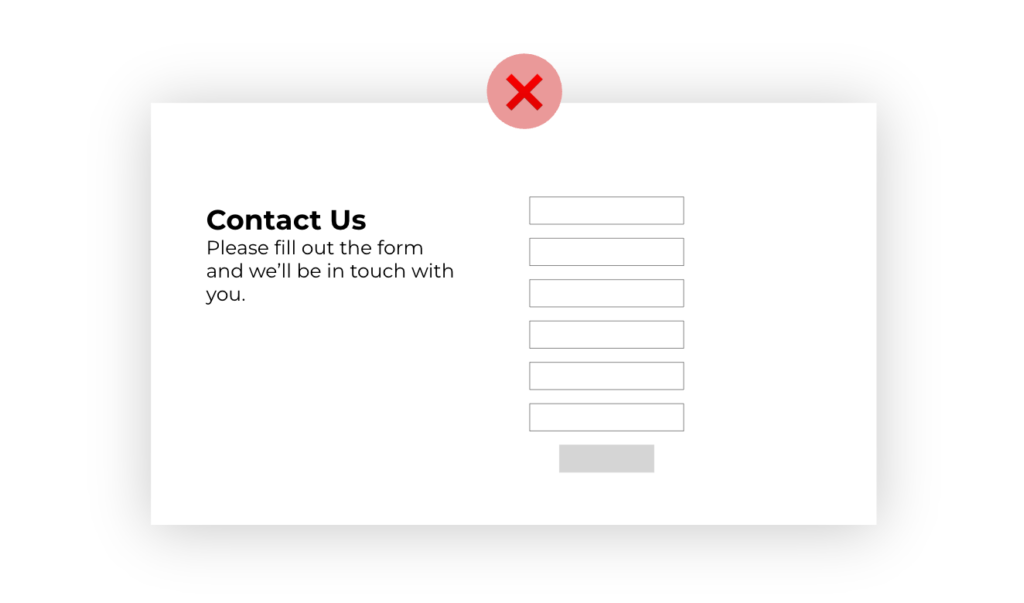TL;DR
Integrating B2B ecommerce into your sales strategy is not just about keeping up with the times—it’s about enhancing the efficiency of your sales reps and improving the overall customer experience.
By allowing customers to self-serve, focusing sales efforts on high-value deals, and leveraging the power of product configurators to identify high-intent leads, businesses can drive better results and achieve sustainable growth.
Additionally, the enhanced marketing capabilities provided by ecommerce platforms further amplify these benefits, making B2B ecommerce a vital tool for modern sales strategies.
One of the most pleasant things B2B companies encounter when introducing B2B eCommerce is that their sales reps often become much more effective in their daily work. Depending on how you sell your products online, the efficiency boost you get from your digital sales initiative might even turn out to be a game changer for your sales organization.
In this blog post, I’m going to walk you through how B2B ecommerce makes your sales reps more effective.
Eliminate Wasted Efforts on Unqualified Leads
Sales reps often spend a considerable amount of time chasing leads that will never convert into customers. Whether it’s due to a mismatch in budget, product fit, or other factors, these unqualified leads drain valuable resources.
Today’s B2B buyers are more independent than ever. They prefer to conduct their own research and gather all the necessary information before making a purchase decision. A robust B2B ecommerce platform empowers these customers by providing a wealth of information at their fingertips. No more gatekeeping vital product details behind a “Contact Us” form. By offering detailed product descriptions, specs, pricing, and more, you build trust and facilitate a smoother buying process. This transparency is key to winning over the modern B2B buyer.
Enable Customer Self-Service
A self-service ecommerce channel isn’t just about reducing the workload for your sales reps; it’s about enhancing the buying experience for your customers. When customers can navigate the buying process on their own terms, they feel more in control and are more likely to have a positive experience.
This self-service model allows customers to configure products, view pricing, and even generate quotes without needing to wait for a sales rep. By helping your customers help themselves, you ultimately support them in making informed purchasing decisions, reducing the need for constant sales rep intervention.
This leads us to the next point 👇
Optimize Sales Rep Time for High-Value Deals
Here’s a common scenario: smaller deals often require just as much effort from sales reps as larger ones, primarily due to internal processes rather than customer interactions. This can be a significant inefficiency.
B2B ecommerce platforms can help optimize this by automating and streamlining the process for smaller deals. This frees up your sales reps to focus their time and resources on larger deals that truly necessitate a personalized touch. By prioritizing high-value deals, your sales team can maximize their efficiency and impact, driving greater revenue growth.
Leverage Product Configurators for Better Leads

One of the standout features of a modern B2B ecommerce platform is the product configurator. These tools allow customers to customize complex products to their specific needs—think heavy machinery, industrial equipment, or large-scale storage solutions.
Let’s be real: nobody spends time configuring a heavy machine or a PVC warehouse just for fun. There’s always a buying intention behind it. This makes product configurators a goldmine for generating high-quality leads.
We like to call these leads Product Qualified Leads, because that’s what they essentially are. You know what your customer is looking for and know the opportunity size. It’s not really a wonder how these leads convert to customers so well!
Enhance Marketing Effectiveness

B2B ecommerce platforms aren’t just a boon for your sales team—they’re also a game-changer for your marketing efforts. Traditional “Contact Us” forms can be a major roadblock for potential customers. They’re often seen as impersonal and unengaging. It’s not really a wonder why the conversion rates average 0,5% with standard Contact us -forms.
In contrast, a well-designed ecommerce experience is interactive and user-friendly, making it easier for customers to engage with your brand. With a seamless ecommerce experience, you can track and analyze proper conversion metrics, allowing for more targeted and effective marketing tactics. This data-driven approach helps you fine-tune your campaigns and drive better results.
Bonus tip: If you’re using a Product configurator that communicates the price for the customer, make sure you incorporate this to your ads copy! We’ve seen this boost your click-through rates of your paid ads (Google Ads for example) by double. Customers tend to prefer the website where they can get the information they need.
Consistent Customer Experience
One final point to consider is the consistency of the customer experience. When sales reps use the same ecommerce tools as customers, it ensures a cohesive and uniform buying journey. This consistency enhances customer satisfaction and fosters a stronger relationship between your business and its clients. When customers know what to expect and receive a seamless experience every time, they’re more likely to become repeat buyers and advocates for your brand.